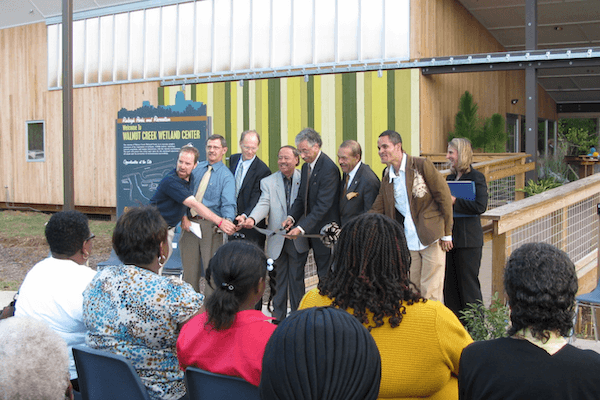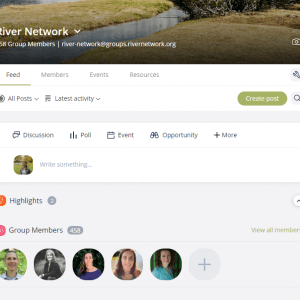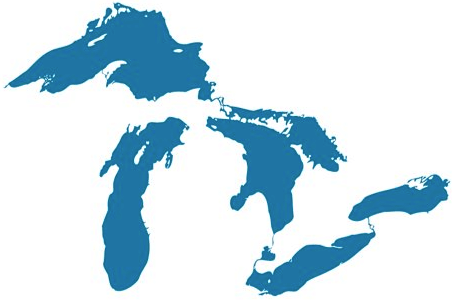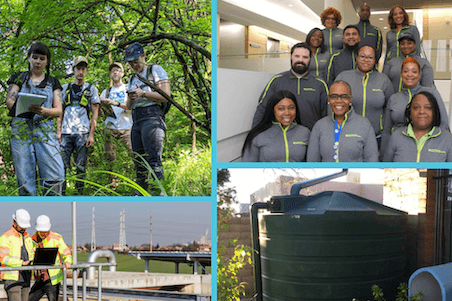River Voices: January 2022

Welcome to the January 2022 edition of River Voices. Start off the new year the new year with a look at how we’ve worked with Partners for Environmental Justice to take their organization to the next level, and support your own personal and organizational development goals with our new and improved Resource Library.
River Network is headquartered in Boulder, Colorado, and our sadness and support goes out to all those across Boulder County who lost so much in the Marshall Fire on December 30, 2021. Multiple staff members were evacuated, but are safe.
How does a small volunteer-run organization transition into a fully fledged nonprofit? Partners for Environmental Justice (PEJ) (Raleigh, NC) recently committed to taking this leap, leaning on River Network for support and collaboration. After over a year of work together, addressing both programmatic and organizational development support, we’re reflecting on what makes investments like these successful and sustainable.
“[Our recent visioning exercise] was incredibly valuable to assess what we’ve done as an organization and look to the future. River Network is also helping to bring this vision to the next level.”
This month, meet Amin Davis, Board member at Partners for Environmental Justice, which seeks to empower historically underserved communities in Raleigh.
River Network’s Online Community turns 1 this month!
If you haven’t already, join hundreds of your peers working on water for connection and collaboration. Connect with peers on topics that matter to you, share opportunities and address challenges, stay up to date on the latest water news, and foster partnerships for shared impact.
June may still feel far into the future, but River Rally 2022 will be here before you know it. Look for more information in the coming weeks on COVID safety measures, scholarship info, awards announcements, and GIVEAWAYS!
This year, registration opens on February 1, with early bird rates and hotel discounts for those who register early. We hope you’ll join us in Washington, DC.
Resources for Strong Organizations & Leaders
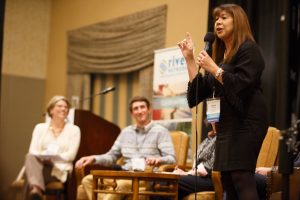 To effectively address the increasingly complex set of issues facing our waterways, water-focused organizations and leaders must be ever more sophisticated in their strategies. This includes being effective in their implementation, well-funded, smartly-led, and inclusive of all members of their communities. River Network provides a variety of support to better equip water protectors and advocates across the country. Start off the new year by exploring all that we offer, including our new and improved Resource Library!
To effectively address the increasingly complex set of issues facing our waterways, water-focused organizations and leaders must be ever more sophisticated in their strategies. This includes being effective in their implementation, well-funded, smartly-led, and inclusive of all members of their communities. River Network provides a variety of support to better equip water protectors and advocates across the country. Start off the new year by exploring all that we offer, including our new and improved Resource Library!
Find resources to support your personal and organizational goals in 2022.
We are thrilled to introduce the Great Lakes Drinking Water Advocates Database! This database features nonprofits and community organizations throughout the Great Lakes region working on drinking water issues. Search for advocates by state, issue expertise, programmatic focus, or contact name. We hope you will use this directory to make connections, build coalitions, and effectively partner with one another.
Trust between water utilities and community organizations is critical for successful decision making and investing that leads to safe, clean and sustainable water for all, and we hope that the lessons shared in our Building Blocks of Trust report can help seed and inspire many more such relationships. In this report you’ll find best practices and case studies you can apply locally to create and bolster relationships that will improve the health of waterways and communities.
Short on time? Download the three-page summary.
Science Corner: OpenET
The latest from our science team.
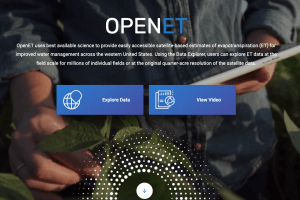
Evapotranspiration is the water that evaporates from the land plus the water that transpires from plants back to the atmosphere. Also known as “ET,” evapotranspiration is typically considered a “consumptive” use of water. This means that when water evapotranspires from a field of corn, the water is not available for reuse (at least immediately in the same area). Compare that to “non-consumptive” water use, like using water in your washing machine – where the water flows to a treatment plan and is cleaned for discharge and/or reuse. Because water losses from ET can be substantial, understanding and measuring them is a key part of water management, especially in arid environments. To help fill this challenging to measure component of the water cycle, a consortium of groups came together to create OpenET, which uses the “best available science to provide easily accessible satellite-based estimates of evapotranspiration for improved water management across the western US.” The online platform uses satellites to estimate the water consumed by plants to inform better water management and planning for improving irrigation efficiency, developing accurate water budgets and tracking water supplies.
To learn more about OpenET, check out some case studies the intro video.
Lunch & Learn About One Good Idea
Jan. 14, 12p ET/9a PT
One Good Idea helps farmers get started and have success with soil health and regenerative practices. The platform can also support the work of professionals who work with farmers to implement conservation practices, such as Extension agents, farm advisors, and conservation professionals.
River Management Society’s Wild & Scenic Webinar Series
Jan. 19 – Jun. 15
Join River Management Society for a six-part webinar series for river managers and advocates. Participants will learn how federal WSR designation protects specific river values and river managers’ responsibilities as caretakers and stewards of the rivers, once their designation takes place.
Exploring River Network’s State Policy Hub
Jan. 20, 2p ET/11a PT
Join the River Network Policy Team in a walk through and feedback session on our State Policy Hub. Participants will learn more about the development of this resource, its key components, and how to best utilize the Hub for action in your state.
How’s My Waterway Watershed Academy Webinar
Jan. 20, 2p ET/11a PT
Join US EPA to learn about several new features added to How’s My Waterway over the last year, including: environmental justice screening layers, watershed health scores, Wild and Scenic Rivers, US Protected Areas, Tribal water assessments, and more.
Inclusive River Recreation Outreach Strategies
Feb. 4, 12:30p ET/9:30a PT
Join the Wild & Scenic Rivers Coalition for their third webinar short. In February, hear from Antoinette Toscano, on a new initiative she’s leading to create a free adventure sports club in partnership with Vibe Tribe Adventures and the city of Loveland, Colorado’s Parks and Recreation Office.
Good News: Water Shutoff Win in New Jersey
On December 21, 2021, New Jersey Governor Phil Murphy signed a bill, which passed unanimously, that both extends temporary water shutoff protections through this winter and creates best-in-nation water shutoff protections for EVERY winter.
h/t to Larry Levine for sharing this news in the Drinking Water Access Exchange.
Five Star and Urban Waters Restoration Grant Program 2022
The National Fish and Wildlife Foundation and partners are pleased to solicit applications for the Five Star and Urban Waters Restoration Program. This program will award grants for programs to develop community capacity to sustain local natural resources for future generations by providing modest financial assistance to diverse local partnerships focused on improving water quality, watersheds and the species and habitats they support.
National Park Service – Rivers, Trails and Conservation Assistance Program
The NPS-RTCA is accepting applications for technical assistance on locally-led conservation and outdoor recreation projects. The program will assist communities in evolving climate resiliency strategies, developing or restoring parks, conservation areas, rivers, and wildlife habitats, as well as creating outdoor recreation opportunities and programs that engage future generations in the outdoors.
Looking for Info on State Revolving Funds?
State Revolving Funds (SRFs) are top of mind for many these days, with the passage of the Infrastructure Investment and Jobs Act. River Network’s Equitable Infrastructure Toolkit is packed with information on SRFs and how to leverage this tool for equitable infrastructure funding in your community.
- “Colorado Saw the Return of the Urban Firestorm“: David Wallace-Wells interviews Boulder, CO climate scientist Daniel Swain on the Marshall Fire.
- “Use Informed Consent to Build Trust and Answer That Damn Demographics Survey on Grant Applications“: A great essay in Community-Centric Fundraising on collecting staff and board demographic data.
- Mississippi River Network’s Anti-Racism Resource Hub: this robust set of resources from Mississippi River Network now also includes an interactive flood risk map.


